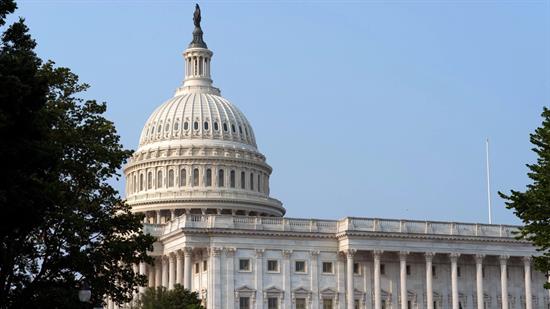Press Releases
Chairman Rouzer Opening Statement from Hearing to Examine Past WRDAs & Future Needs
Washington,
December 5, 2023
Tags:
Transportation
WASHINGTON, DC - Water Resources and Environment Subcommittee Chairman David Rouzer (R-NC-07) delivered the following opening remarks at today's Subcommittee hearing entitled, “Water Resources Development Acts: Status of Past Provisions and Future Needs.” Chairman Rouzer emphasized the importance of enacting a bipartisan WRDA bill every two years to meet the water resources needs in communities across the country. Chairman Rouzer also highlighted how past WRDA bills have strengthened communities in North Carolina's Seventh Congressional District. This includes authorizing beach renourishment projects in Oak Island and Holden Beach, Wrightsville Beach, and the Town of Surf City, as well as the North Carolina National Coastal Mapping Study Chairman Rouzer secured in WRDA 2022 to map inland and coastal waterways and identify potential hazards which can lead to increased flood risk. I’d like to first thank our witnesses, Assistant Secretary Connor and Lieutenant General Spellmon, for joining us today as we begin work on the 2024 Water Resources Development Act (WRDA). It’s helpful for the Committee to hear directly from the Army Corps at the beginning of the WRDA process because these bills are the primary way Congress guides the Corps’ projects and priorities. As we all know, the Corps is the federal government’s lead water resources development and management agency. Next year will mark the bicentennial anniversary of its first civil works mission, which was to improve the safety and navigability of the Ohio and Mississippi Rivers. Over the past 200 years, the Corps has expanded its primary missions to include flood mitigation, coastal protection, emergency response, and ecosystem restoration. Whether urban or rural, inland or coastal, meeting the water resources needs in communities across the country is vital to our security, safety, and economic stability. Well-functioning and reliable navigation systems allow for the movement of more than two billion tons of cargo each year, levees and dams help protect communities and critical industries from flooding, and coastal restoration projects address erosion and minimize the impacts of storm damage on seaside communities, which is particularly important for my constituents in North Carolina’s Seventh Congressional District. For example, in Brunswick County, the Corps is undertaking a study to address beach nourishment needs for the next 50 years in Oak Island and Holden Beach. In Wrightsville Beach, the renourishment project is set to finally move forward this month thanks to the Corps’ emergency exception allowing them to use the historic Masonboro Inlet borrow site for sand. Additionally, the Town of Surf City anticipates receiving its overdue beach nourishment upon the Corps approval of funding. By authorizing projects and studies, and providing direction on programmatic changes, WRDAs better enable the Corps to achieve its key civil works missions. Since 2014, Congress has enacted a WRDA bill every two years with strong bipartisan support and we're going to continue that. This consistency during the past decade has allowed Congress to respond to local water resource needs more effectively. It also imparts confidence that we can address water infrastructure needs that may arise in the future, regardless of partisan discord that we may find here in Washington. Through these bipartisan bills, Congress has authorized new projects and studies across the country. We’ve also streamlined processes at the Corps, improved project delivery, expanded opportunities for non-federal project sponsors to develop and execute water resource projects, and enhanced the Corps’ ability to respond to emergencies and disasters, to name a few. For my district, in WRDA 2022, we were able to authorize the North Carolina National Coastal Mapping Study to map inland and coastal waterways and identify potential hazards, such as debris and sedimentation, which can lead to increased flood risk. This study will lead the way in a larger nationwide effort to invest in flood resilience, and I am pleased funding for such was included in the House Energy and Water Appropriations bill. Additionally, it’s important to emphasize that the success of previous WRDAs is due in large part to the strong participation from all Members, not just of this Committee, but throughout the House. Coordination with the Corps, and constructive feedback from non-federal partners as well as other stakeholders has been critically important as well. I look forward to continuing this bipartisan tradition with WRDA 2024. In that spirit, we are very pleased to have Assistant Secretary Connor and Lieutenant General Spellmon here before the Subcommittee today to discuss their efforts to implement WRDA 2022 as well as other priorities as we move towards WRDA 2024. Click here for more information from today’s hearing, including video and witness testimony. |


